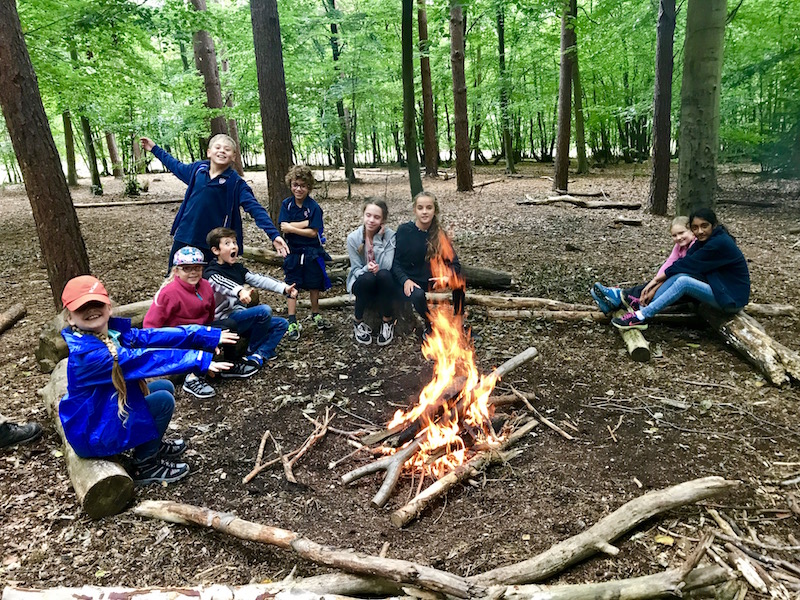The importance of teaching children how to take risks
Posted on 21st May 2018 in School News, Curriculum, Prep Schools Guide
Philippa Cawthorne, Headmistress of Bassett House School in London, says that young people need to learn how to take risks...
With artificial intelligence poised to make people redundant from many traditional careers in the near future, it is crucial that children are given the right tools to enable them to flourish in this brave new world. Today, a job for life is already an archaic concept and in the future who knows what new careers will exist for our children? Children need to learn to be adaptable, resilient, creative and willing to take risks, to meet the challenges and seize the opportunities of tomorrow.
The ethos of Bassett House is to provide a child-centred forward-looking education. In the course of each school day a Bassett child makes innumerable finely-tuned decisions to determine the levels of physical, social and emotional risk he or she will (or will not) accept to complete a task or understand a problem. Given the right opportunities, children can rehearse a wide range of responses to them, in preparation for an adult world they will eventually have to negotiate. In this way, we see children develop day by day an increasing mastery of concepts, skills and habits of thought, upon which they can draw with confidence in the future.
Risk-taking represents an important part of the curriculum at Bassett House, especially if it means working with others to solve problems (we regard collaboration as a crucial step towards adulthood). We encourage children to take risks by adopting a can-do approach towards their everyday learning and by undertaking specific challenge activities in subjects such as English and mathematics. And, acknowledging the fact that some of the most important lessons a child can learn take place outside the classroom, we enable them to take part in a range of clubs, enrichment activities and residential trips. There, they may push their boundaries and let their imaginations soar beyond the confines of the familiar. Our before and after-school clubs and enrichment activities, such as orienteering, martial arts and fencing are selected to encourage ‘thinking on one’s feet’, the development of leadership skills, team-building and active problem-solving. The destinations of our residential trips are chosen carefully to introduce the children to new experiences, from learning how to rig and sail a boat to bushcraft activities, where children can make their own shelter in which to sleep, build a camp fire and cook on it, and learn bushcraft skills in the freedom of a wild wood. London also provides us with opportunities for other adventures, such as spending a night in the Science Museum.
Children at Bassett House are encouraged to have a growth mindset approach to their learning and not give up when they find something difficult to achieve, rather than ‘I can’t do it’, to say ‘I can’t do it yet’. In order to inspire the children, my staff take up new challenges, such as playing an instrument or learning a new language. I learnt the oboe last term and undertook a big challenge to attempt to reach the 4810m summit of Mont Blanc last autumn to raise money for The House Schools Trust bursary fund. The children were with me every step of the way as they completed a stepathon, recording the number of steps they took between Monday and Wednesday of that week. They were informed that I would take roughly 27,000 steps on my expedition, and, keen to support me, they clocked up a total of 32,361 steps over three days.
At Bassett House, we encourage children to take risks and undertake challenging activities to understand better the opportunities and challenges in the world around them. It is this grounding that not only helps our pupils gain places at some of the most prestigious senior schools in London but also to thrive once they have moved on. The skills employers are looking for today already favour people who work well in a team and are good at problem-solving. If we want children to have the confidence and skills to survive and thrive in an increasingly challenging world, we need to allow them to learn how to develop their own awareness of limits and boundaries and how to expand there – to learn, in short, to take risks.